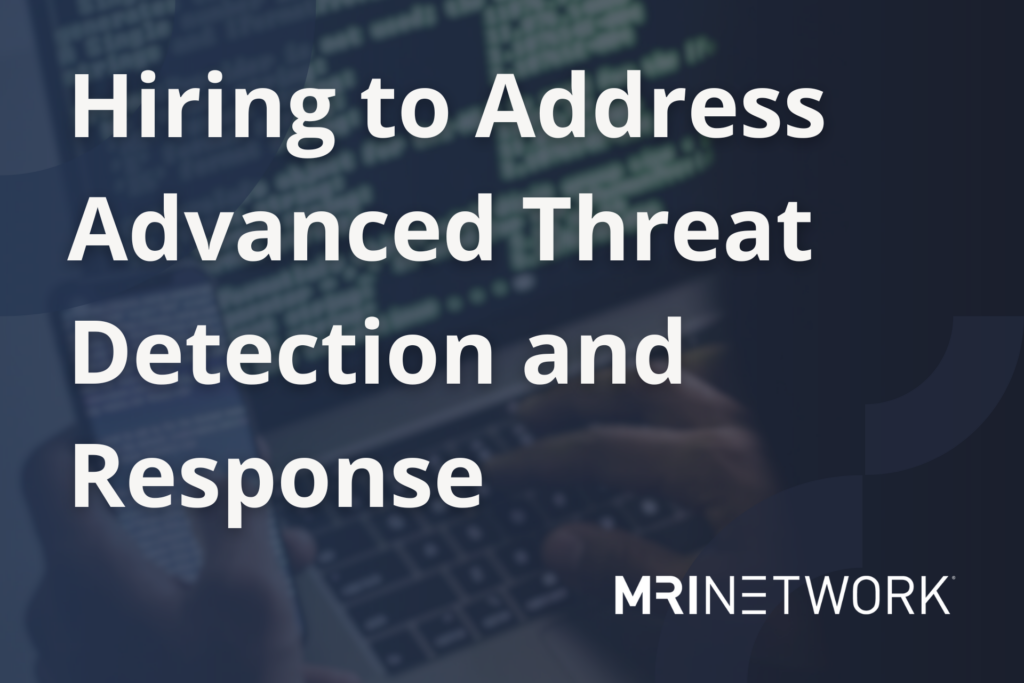Cybersecurity was the IT department’s responsibility for years, but not anymore. Today, HR practitioners also play a significant role in cyber risk management. Their roles may include creating and implementing employee data permissions, creating cybersecurity policies, and addressing employee-related cyber breaches. However, they face various challenges when called upon to help with threat detection and response. Here’s a look at the main cybersecurity challenges for HR teams:
Employee Recruitment
As technologies advance, so do cyber attack techniques. Thanks to the increasing sophistication of attack methods, organizations need cyber-aware employees. For this reason, HR managers should recruit employees who can detect and respond to cyber threats. Even so, the increased competition for cyber-aware candidates makes finding them challenging.
Furthermore, HR practitioners have a role in nurturing a cybersecurity culture at their organizations. Traditionally, the IT department’s role was to create cybersecurity awareness. Nonetheless, HR’s involvement and input have become pertinent to ensuring security measures. IT teams primarily implement cybersecurity measures, but the onus is on HR to ensure implementation.
The Evolution of Cybersecurity
The cybersecurity space changes daily, and the increasing sophistication of attacks attests to that. Although more companies prioritize cybersecurity, HR managers still play catch-up, primarily because they have relatively limited IT security expertise. With cybersecurity threats evolving constantly, HR managers face the challenge of implementing stringent security practices to help their organizations keep up with the latest cyber threats.
The Shift to Remote Work
According to a recent report, the percentage of remote workers tripled to 17.9% between 2019 and 2021. Despite being highly desirable among employees and HR managers, hybrid work environments intensify the risk of cyber breaches. That’s because it’s challenging to monitor a remote workforce.
When implementing remote work, organizations must reduce their cyber risk exposure without affecting productivity. Ensuring remote workers adhere to the organization’s cybersecurity policies may seem like an IT department concern, but it also involves HR managers. A significant challenge to HR teams is training employees on data security in a remote environment and ensuring they follow security best practices.
Managing Information Access and Security
As more organizations shift to remote work, a significant challenge for HR teams is balancing information access with security, a concern shared by both HR and IT teams. For HR managers, employees must access the data and resources needed to do their job. Conversely, the IT manager’s concern is ensuring sensitive company data does not fall into the wrong hands.
Consequently, HR managers should partner with IT to ensure both on-site and remote employees access the data needed to undertake their tasks and nothing more. It will help maintain the organization’s cybersecurity stance while ensuring employees access the resources they need to be productive.
AI Adoption
Artificial intelligence has had a significant impact across all industries. In HR, AI can improve efficiency in candidate assessment, thus helping recruiters determine whether prospective candidates are the perfect fit for various open roles. Moreover, it can help the HR department improve its relationship with employees.
Nonetheless, AI comes with its challenges for HR managers. These technologies can only function effectively if an organization has employees knowledgeable about AI solutions. HR managers must recruit and train the appropriate employees, which takes time and resources.
Involvement in Data Disclosure
HR directors should help manage data breaches and disclosures. Nevertheless, many are unfamiliar with data breaches. In this regard, HR teams must work with IT to implement incident response plans and measures for assessing accountability when the organization faces data breaches. In doing so, it will be easy for HR managers to recommend appropriate punitive or remedial actions when data breaches occur.
Implementing a Secure HRIS
Every organization needs an HRIS to manage core HR processes. However, an HRIS contains sensitive employee information that cybercriminals may want to access. Keeping the HRIS secure presents a significant challenge to HR directors and requires constant collaboration with the IT department.
Final Thoughts
Keeping an organization’s data and networks secure is no longer a preserve of the IT department; it involves everyone, including HR directors. Thus, understanding today’s cybersecurity challenges can help HR managers to implement the right policies and stay ahead of the competition. If you’re an HR director looking to help your organization combat its cybersecurity challenges, follow MRINetwork for more insights.

Connect with MRINetwork